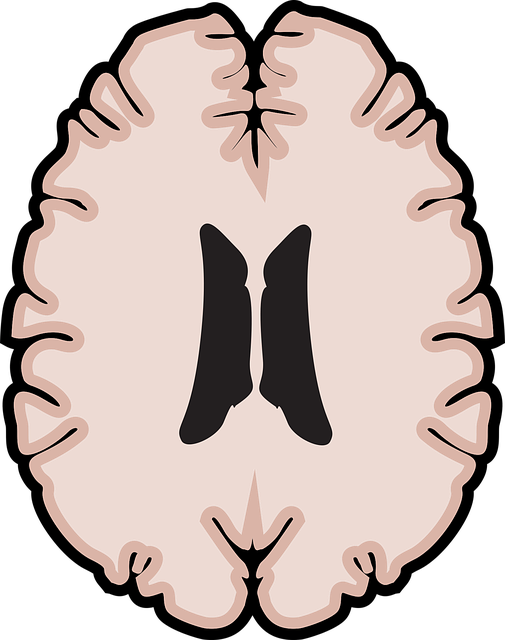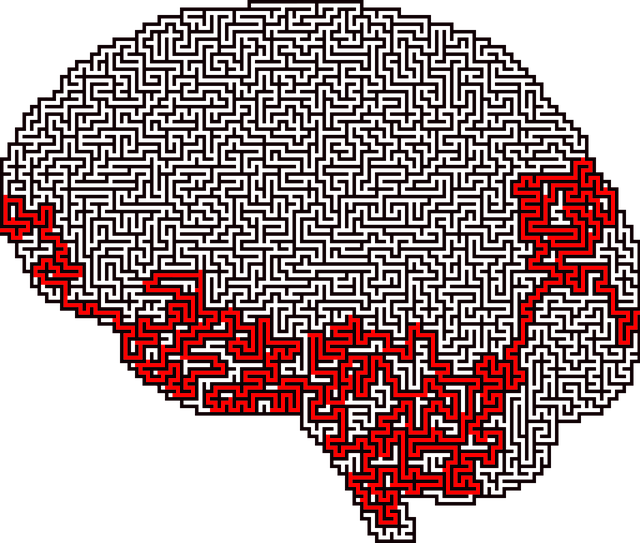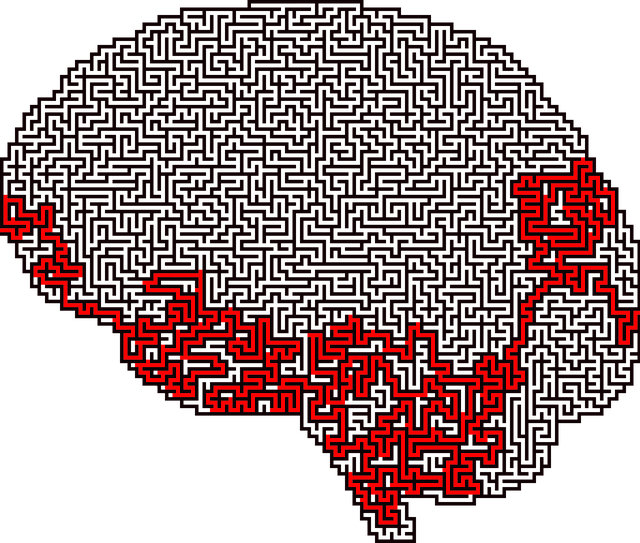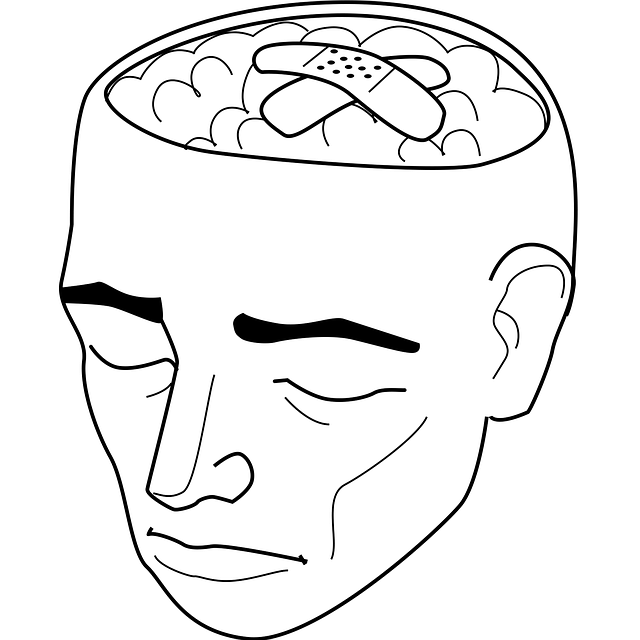Understanding mental health diagnoses is crucial for effective treatment, with conditions like depression, anxiety, bipolar disorder, and schizophrenia requiring tailored approaches. Mental health professionals use comprehensive assessments to diagnose individuals, who may then benefit from holistic solutions including stress management workshops and trauma support services alongside traditional therapy. Therapy for bariatric evaluations examines the connection between physical health and mental well-being, using multidisciplinary teams to address both aspects. This collaborative care is increasingly integrated into mental health education for proactive burnout prevention. Effective communication between patients and healthcare providers is key to accurate diagnoses and tailored treatment plans, including therapy for bariatric evaluations. Building resilience through these methods ensures long-term mental wellness.
Mental illness diagnosis and treatment navigation can be a complex, often daunting process. This comprehensive guide delves into key aspects of supporting individuals through mental health challenges. From understanding intricate diagnoses like bariatric evaluations, which play a significant role in therapy, to crafting personalized care plans and fostering effective communication with healthcare professionals, we explore strategies for navigating this journey. Additionally, we discuss building resilience and coping mechanisms for long-term wellbeing, empowering folks to conquer mental health hurdles effectively.
- Understanding Mental Health Diagnoses: A Comprehensive Guide
- The Role of Bariatric Evaluations in Mental Illness Treatment
- Navigating Therapy Options: Individualized Care Plans
- Effective Communication with Healthcare Professionals
- Building Resilience and Coping Strategies for Long-Term Wellbeing
Understanding Mental Health Diagnoses: A Comprehensive Guide

Understanding mental health diagnoses is a crucial first step in navigating effective treatment options. It involves recognizing specific conditions, such as depression, anxiety disorders, bipolar disorder, schizophrenia, and many more. Each diagnosis has its unique set of symptoms, causes, and treatment approaches. For instance, therapy for bariatric evaluations may be recommended to address eating disorders, which require specialized care.
Mental health professionals use comprehensive guides and assessments to pinpoint the right diagnosis. This process often includes detailed patient histories, psychological evaluations, and sometimes physical examinations. By understanding the nature of their illness, individuals can better manage their symptoms and make informed decisions about their treatment plans. Supportive services like stress management workshops, positive thinking interventions, and trauma support services play a vital role in complementing traditional therapy, offering holistic solutions for well-rounded recovery.
The Role of Bariatric Evaluations in Mental Illness Treatment

In the complex landscape of mental illness treatment, bariatric evaluations play a pivotal role in enhancing therapeutic outcomes. These comprehensive assessments go beyond traditional weight-related considerations and delve into the intricate relationship between physical health and mental well-being. By integrating advanced diagnostic tools and risk assessment strategies, healthcare professionals can effectively navigate the challenges associated with obesity and mental disorders. This holistic approach, often referred to as therapy for bariatric evaluations, involves a multidisciplinary team that includes psychiatrists, psychologists, nutritionists, and medical specialists. They collaborate to provide personalized care, addressing both the physical and psychological aspects of an individual’s health.
In light of growing concerns about burnout prevention strategies for healthcare providers, mental health education programs design has evolved to include these evaluations as a crucial component. By incorporating risk assessments for mental health professionals into routine practice, clinics can early identify individuals at high risk and implement targeted interventions. This proactive measure not only enhances patient outcomes but also contributes to the well-being of healthcare providers, fostering a sustainable treatment environment.
Navigating Therapy Options: Individualized Care Plans

Navigating therapy options is a crucial step in mental health treatment, especially when tailored to individual needs. Each person’s journey with mental illness is unique, and so should be their care plan. Professional assessment plays a vital role in determining the most effective approach, considering factors like the specific disorder, severity, and personal circumstances. For instance, therapy for bariatric evaluations may involve cognitive-behavioral therapy (CBT) to address eating disorders, coupled with social skills training to foster healthier relationships and support systems. A comprehensive risk assessment for mental health professionals is essential to ensure patient safety and guide appropriate intervention strategies. Public awareness campaigns development can also play a role in normalizing conversations around mental health, reducing stigma, and encouraging individuals to seek the specialized care they deserve.
Effective Communication with Healthcare Professionals

Effective communication between individuals seeking treatment for mental health issues and their healthcare professionals is paramount. This begins with a patient’s ability to articulate their symptoms, concerns, and expectations clearly. Many people facing mental illness may struggle with emotional regulation and stress management, making open dialogue even more critical. A supportive environment where patients feel comfortable expressing their experiences fosters trust and encourages honest disclosures, which are essential for accurate diagnosis and tailored treatment plans.
Professionals play a vital role in translating these discussions into actionable steps. They can offer guidance on various therapy options, including those specifically designed for bariatric evaluations, to address the unique needs of each patient. By integrating emotional well-being promotion techniques into the treatment framework, healthcare providers can empower individuals to manage their mental health alongside any physical changes.
Building Resilience and Coping Strategies for Long-Term Wellbeing

Building resilience is a cornerstone of navigating mental illness and ensuring long-term wellbeing. It involves developing coping strategies that enable individuals to manage and overcome challenges associated with their condition. Through therapy for bariatric evaluations, for instance, those struggling with eating disorders can acquire tools to challenge distorted thought patterns and develop healthier behaviors. This process fosters self-awareness and emotional regulation, which are vital in maintaining mental health.
In addition to therapy, trauma support services play a crucial role in reducing the impact of past traumas that often coexist with mental illness. Mental illness stigma reduction efforts also contribute by creating supportive environments where individuals feel comfortable seeking help without fear of judgment. By combining these approaches, along with ongoing mental health awareness initiatives, individuals can build resilience and cultivate sustainable coping mechanisms for a fulfilling life.
In navigating mental illness, understanding diagnoses, evaluating therapy options, and fostering effective communication are pivotal. By incorporating personalized care plans and building resilience through coping strategies, individuals can achieve long-term wellbeing. For those exploring therapy for bariatric evaluations, a comprehensive approach integrating mental health support with medical assessments is key to holistic healing. Remember that with the right navigation assistance, managing mental illness is possible, leading to improved quality of life and enhanced overall wellbeing.












